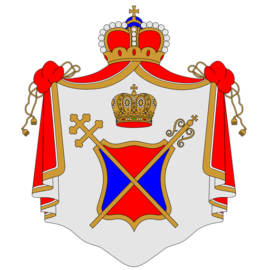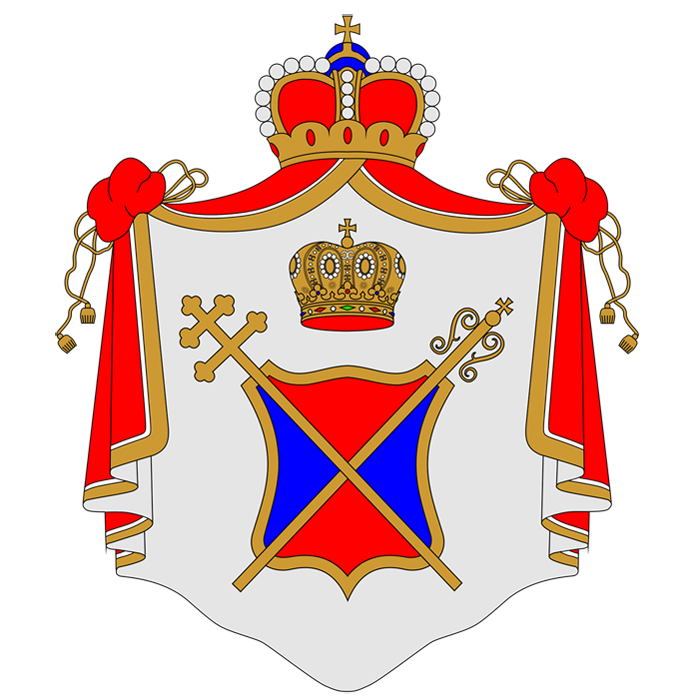Putin’s War
– By Lilia Radulovic, MD –

We are now into the third month of Vladimir Putin’s war in Ukraine. It is a war of choice, against humanity, and for reasons as incredulous as its results are disastrous.
Despite all verifiable evidence to the contrary, Putin claims that a small democratic nation to Russia’s southeast somehow threatens his country’s citizens and sovereignty. Drawing upon fading memories of Soviet military glory in World War II, Putin’s path to scapegoating Ukraine is an out-of-thin-air accusation of Nazi infestation – one that must be exterminated by any means necessary.
Who, I ask, is gullible enough to believe these bald-faced lies?
How can anyone be convinced that the world’s largest country – a multi-continental nation stretching over 17,125,000 square kilometers – is experiencing an impromptu existential threat? To place its girth in context, Russia is nearly twice the size of the world’s second-largest country, Canada, and about as large as the entire continent of South America.
And by the way: at last count Russia has 6,257 nuclear weapons, outpacing Ukraine’s total by exactly… well, 6,257. Can’t get more lopsided than that.
So what, then, would satisfy Putin’s sudden need for safety? A few hundred thousand more square kilometers? Annexing Ukraine’s Donbas region – or the entire country perhaps? Why not take Finland and Sweden, the Baltic nations and the Balkans while he’s at it? Where’s Neville Chamberlain when you need him?
Putin’s charge of neo-Nazism, of course, is code for Western expansion into Eastern Europe. Conjuring a vanquished foe from decades past gives Putin a warmongering wild card, an ace in the hole he can play at will. It is nothing more than bellicose blathering – a histrionic historical reshuffling to suit modern-day motives.
So who’s playing cards with this Joker? Seven out of ten Russians, that’s who. Per Associate Professor Nikita Savin of HSE University in Moscow, recent polls show that about 70% of Russians approve of sending troops to Ukraine. Other polls have placed approval for the invasion – sold as a “special military operation” on Russian state media – at around 60%. Regardless, well over half of Russians believe the seemingly unbelievable: that Russia is justified, and that Ukraine is a legitimate threat.
It’s tough to say whether these polls reflect statecraft or stagecraft – whether they are real, or as imagined as the pretense for the war itself. Encouragingly, we’ve seen Russians protesting Putin’s war in scores of Russian cities, knowing full well they’ll be jailed and labeled anything from dissidents to terrorists. And to stop the ugly truth from spreading, Putin has had to take extreme measures, essentially criminalizing journalism by mandating a 15-year prison sentence for reporting so-called “fake news” – that is, news that contradicts Kremlin propaganda.
Russians, then, are having Putin’s War rammed down their throats. Through a tried-and-true autocratic playbook – jailing opposition, repeating lies on state-run media, censorship of the Internet and independent journalism – Putin is forcing Russians to either bite their lips in silence or swallow the war in ignorance by embracing patriotic propaganda.
Of course, Russians aren’t the only ones supporting Putin’s War. Closer to home, we need to look no further than our neighbors in Serbia.
In late February, President Aleksandar Vučić declared that “80 percent of Serbia’s media are always, no matter what happens, on the Russian side” – and that’s without fear of intimidation and imprisonment by their government. Ladies and gentlemen, the “Putin’s Puppet” contest has a winner!
What connects Serbs and Russians so firmly? For starters, both countries seem to have a collective mindset that praises – or at least doesn’t discourage or dissuade – dictators, a collective “I’d rather be safe than free” cautiousness.
Another parallel is the Serbian and Russian Orthodox Churches, whose narratives justify, respectively, Serbian nationalism and Russian re-imperialization. And while I certainly do not believe all Serbian or Russian people ascribe to these narratives, it’s undeniable that those who do have helped shaped a history that unfortunately repeats itself.
Since the Romanov dynasty in the 17th Century, Russians have had strongmen leaders who prefer their subjects repressed. To emotionally control the unhappy masses, these authoritarian tricksters often deflect national aggression externally. The result is a persistent “the world is out to get us” motif.
The roster of Russia’s enemies, real and imagined, is endless. Mongols, Japanese, Chinese. Americans, Europeans, NATO members. Afghans, Iranians, Georgians. Ukraine is just the latest in a lengthy list of theatrically trumped-up threats that must be stopped lest Russia suffers or even perish. Forget your lack of freedoms, my fellow Russians – they’re the reason for your troubles.
Meanwhile, Serbia’s roots trace to a crushing military defeat at the Battle of Kosovo in the late 14th Century. In framing its national origin story in loss and humiliation, Serbian leaders justify portraying Serbs as eternal victims whose historical wrongs must be righted. Evidenced by the national-crisis-level response to tennis player Novak Djokovic’s banishment from the Australian Open – an unvaccinated athlete visiting a country that requires COVID vaccination for entry – Serbia has a national chip on its shoulder for all things big and small. It is eternally aggrieved – an ingrained trait that benefits its generally corrupt leaders.
And like Russia, those Serbian leaders have, historically, been either totalitarians or authoritarian-leading strongmen posing as fairly elected presidents and prime ministers.
To dictators, democracy – government of, by, and (ideally) for everyday citizens – threatens not only their aspirations but their very existence. Democracy requires actual persuasion rather than the type meted out by storm troopers in riot-gear and faux newscasts on state-run media. What’s more, when dictators end up meeting the people – the actual people, not the ones forced to smile for propaganda pieces – the result tends to look like former Libyan leader Muammar Gaddafi: a deposed strongman dragged from a drain pipe and, per amateur video footage, slaughtered in the streets. (How’s that for an opinion poll?)
With Ukraine, Putin is forced to look in a funhouse mirror of sorts. In his southeastern neighbor, he sees a people starkly similar in appearance and culture to Russians… but with democracy, a free press and an open economy supporting a thriving middle class. And who’s this young, charismatic comedian-turned-president inching this nation ever closer to the West?
Putin saw a former Soviet bloc nation prosper in freedom, and decided – for his own protection, not his country’s – to snuff that freedom and prosperity out. To bomb it, pillage it, rape it. To bind its free hands behind its back, execute it and bury it in a mass grave.
And now, as Russian troops “regroup” (more like “retreat”) after a failed attempt to overrun Ukraine – and some world leaders call him a “war criminal” – Putin is faced with a surprising counternarrative. What if the war he launched to firm up his own power… ends up costing him that power? What if the regime change that comes of this brutal, borderline genocidal invasion is in Moscow rather than Kyiv?
As discussed, while everyday Russians are crushed by the weight of authoritarianism, other nations seem to support strongmen openly and without reservations. Why? If democracy is people’s government, why do some people fear it so? Could freedom be a burden? Perhaps they don’t trust themselves with a responsibility that, at its best, demands informed citizenry and difficult choices? Might it seem easier merely to fork over freedom to a patronizing patriarch, however awful he be?
Let us remember how God created us. We were created to be free!
The leader of the Russian Orthodox Church, Patriarch Kirill supports the “eradication” of Ukraine. Metropolitan Joanikije of Serbian Orthodox Church in Montenegro stated that: “Montenegro is projected to be a small Ukraine. Those two “holy” men disagree with God’s teaching.
Would you want to be under their “divine” protection? Neither would I!
To that, another parallel: Ukraine’s population comprises 30% Russians – the same percentage of Montenegro’s population made up of Serbs. The Serbian Orthodox Church denies the existence of Montenegro; the Russian Orthodox Church extends the same denial to Ukraine.
This mindset explains why the Serbian Orthodox Metropolitan Joanikije occupies our Montenegrin Orthodox Church in Cetinje, and his overbearing arrival in September 2021 via military helicopter. Undoubtedly arranged and overseen by Prime Minister of Montenegro, Zdravko Krivokapić and Serbian President, Aleksandar Vucic, this descend-from-the-heavens show of strength was a poor pantomime of Russian intimidation tactics. Religions leaders are supposed to serve congregations, not Serbian imperial interests.
Back in Russia, will killing innocent people help Putin reclaim his glory? He certainly deserves a special place in hell. Free nations around the world are expressing their appropriate outrage at the invasion of a sovereign, democratic country in the 21st Century. Suspiciously missing from this list are long-term rogue states like China, Belarus, Iran, North Korea, Syria … and Serbia.
While people in most of those nations are controlled by dictators, Serbians are imprisoned not by their government but by their past. Their notion of Great Serbia consists of the same patriotic posturing as Russia’s imperial aspirations.
With Putin’s War, we again see shades of Serbia’s darker side. While by no means do all Serbians support Russia’s illegal invasion of Ukraine, it’s undeniable that a sizable slice of Serbs favor Putin’s War because, should it succeed, it could signify a new era of unpoliced international aggression. It would embolden Serbian leaders to flex their muscles and test the waters – to see how much they can get away with in terms of controlling Montenegro and other neighbors. It may not bring us back to 1991, but it would certainly bring us backwards in our ongoing journey to peacefully coexist.
Putin has destroyed beautiful cities and places rich with history, culture and life. He slaughters innocent civilians. And he has made his country an international pariah, complete with a crashing currency and shortages of basic goods.
He will try to spin this tragedy – and this defeat – into his victory. But he is learning that his ability to demolish democracy, civilization and the future stops firmly at the Russian border.
Hopefully, for the sake of us all, Serbian leaders are taking that lesson to heart.
What do I know about war? I was in beautiful Zagreb when the bombing began on September 16, 1991. It was not a slow build-up: the next day saw nearly 50 air raids.
Regardless, I continued traveling daily from my home in New Zagreb to The Medical School, located on Salata. Along the way, I would sometimes stop as many as ten times to take refuge in bomb shelters. There were horrific scenes at the hospital. The city had no streetlights for over a year, and we could not turn lights on in our homes for fear of attracting the enemy’s attention. I studied for exams in the bathtub by candlelight, and spent most nights in bomb shelters. People’s faces fade after all those years, but one never forgets their suffering, lost dreams, the sound of sirens, air raids and death. Once again, we find ourselves in a dangerous time. Serbia is already exerting too much influence in Montenegro, including the Serbian Orthodox Church’s nomination of Prime Minister Zdravko Krivokapic in our last election. Those who choose to stay stuck in the 14th Century have the right to do so – but they do not have the right to revisit the atrocities of previous generations. Hopefully, we Montenegrins are well on our way to joining the EU, taking our rightful place among the European family of nations. It is where we belong. “Life can only be understood backwards, but it must be lived forwards.”

